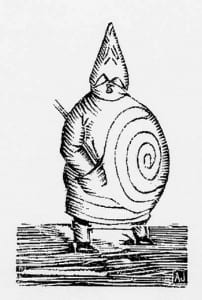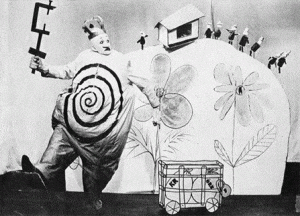Historiography – ‘the pursuit of truths about the past within the conditions and constraints of possible knowledge’ (Postlewait, 2009, p.1)
Thomas Postlewait outlines that historians ‘must transform the artefacts into, develop supporting evidence for their hypotheses, place historical events in appropriate contexts…’ (2009, p. 1). In many cases this can be useful and help people develop an understanding of the past. Yet as a pro Stalin picture could have been staged and false, theatre documentation can be just as unreliable.


Theatre is ephemeral. There are hundreds of ways, such as recording, reviews, pictures, of documenting theatre, but it is impossible to capture the spirit and liveness of the event. From past events, pre television, we have little actual sources, some reviews or accounts of the event, but they are through the lens of an onlooker and can only be seen as bias. Furthermore, we have the actual texts of scripts but there is no one of truly knowing whether Alfred Jarry wanted Ubu Roi to shock as it did (or has been reported), or how it truly felt to stand in the Globe through one of Shakespeare’s plays.
In addition, video recordings are just as unreliable. We are not watching a live performance, we are watching what someone else has watched. Someone has decided for us what we see and when. It certainly is a good thing to record these events especially in this way as aesthetics and general performances can be picked up and analysed but due to the ephemeral fleeting nature of live performance, some things can never be understood.
Why is Historiography important?
‘Every performance, if it is intelligible as such, embeds features of previous performances: gender conventions, racial histories, aesthetic traditions – political and cultural pressures that are consciously and unconsciously acknowledged’ (Diamond, 1996, p.1).
Like all fields, an understanding of drama’s past helps embellish and strengthen performances today and in the future. Not only can you learn from mistakes made from those of the past but also see how audiences reacted to certain things. For dramaturgs it is essential in order to educate their show with as much insight and knowledge as possible in order for it to be as successful as possible.
As a result of the importance of historiography, plays are haunted by its predecessors. Audiences do not arrive at a show oblivious to theatre as ‘Everything in the theatre, the bodies, the materials utilized, the language, the space itself, is now and has always been haunted, and that haunting has been an essential part of the theatre’s meaning to and reception by its audiences in all times and all places’ (Carlson, 2001, p.15). If a famous play such as Hamlet is being performed, an audience member brings with them several things. They may have seen a production, or several, of the play before and find themselves comparing the production to that which they have already seen. This can work with famous actors too. A famous actor will not only be seen as the role they a playing on stage but also previous roles in which audience members may recognise them from. This theme of ghosting can work in both a positive and negative sense depending on each of the externalities.
Below is a presentation on how Alan Bennet’s The History Boys is haunted by it’s original cast and the Britain in which it was set;
Works Cited
Carlson, M. (2003) The Haunted Stage: The Theatre as Memory Machine. Michigan: The University of Michigan Press
Diamond, E. (1996) Performance and Cultural Studies. Oxon and New York: Routledge.
Postlewait, T. (2009) The Cambridge Introduction to Theatre Historiography. Cambridge: Cambridge University Press.
Comments are closed.